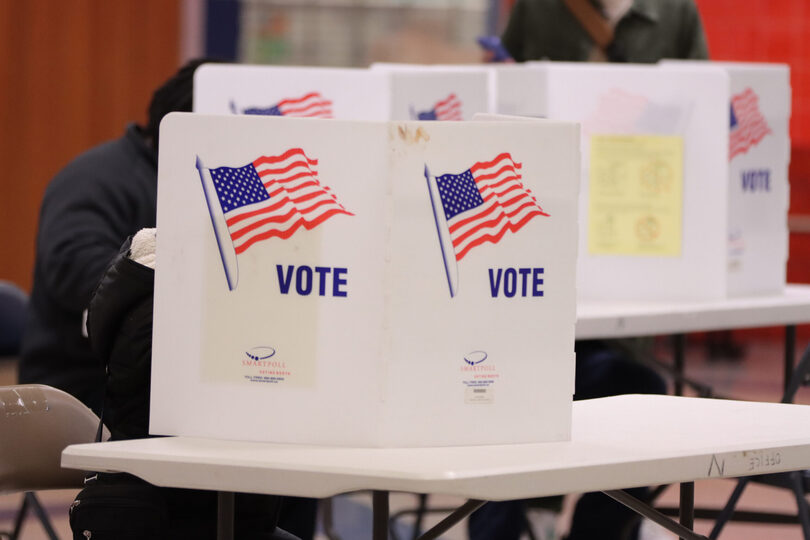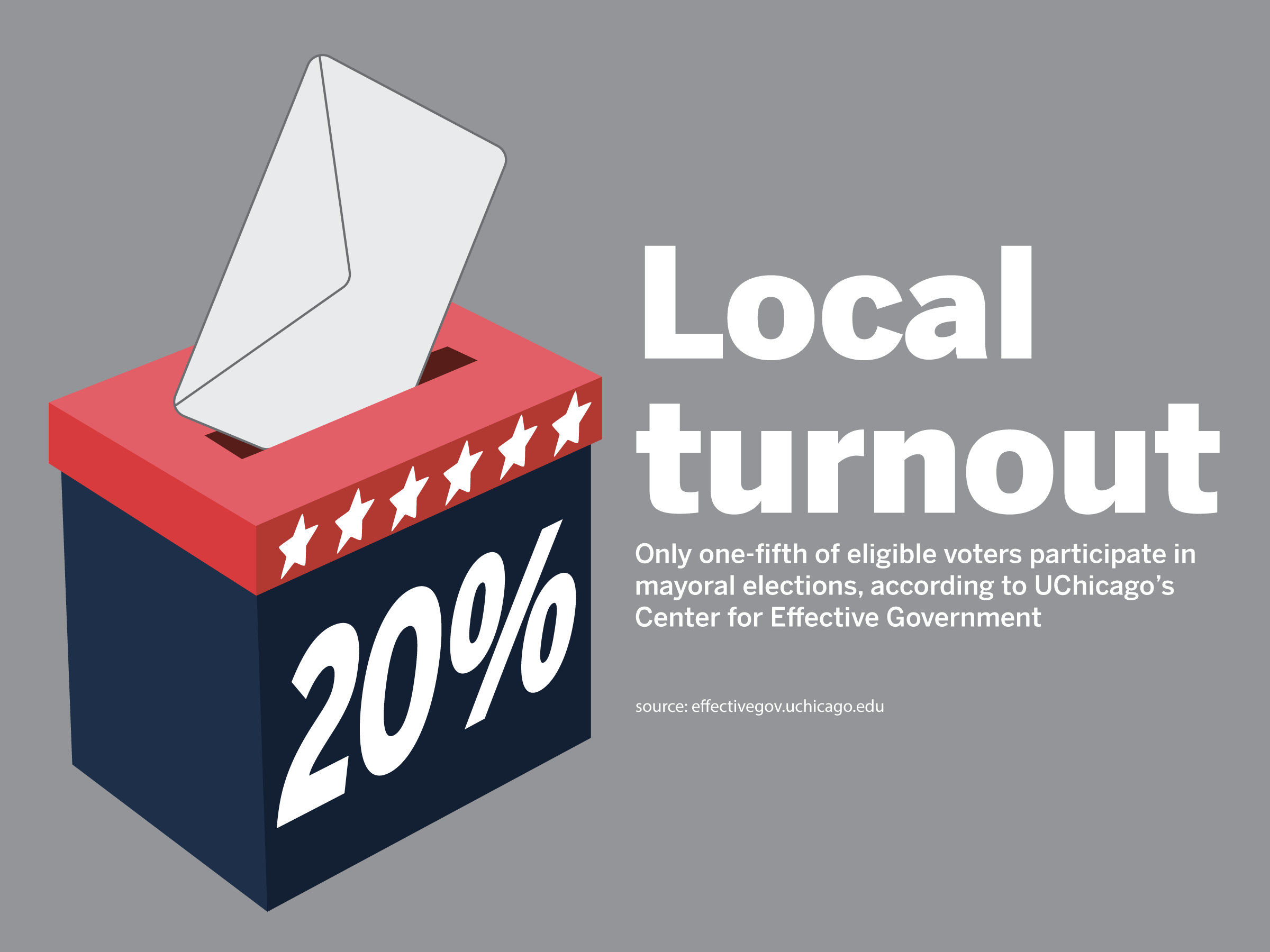Opinion: Higher voter turnout is good, shows Americans only vote when affected

A week after Election Day, our columnist stresses the importance of voting in local elections. We must protect policy that helps our communities, even when it doesn’t directly affect us. Brody Shuffler | Contributing Photographer
Get the latest Syracuse news delivered right to your inbox.
Subscribe to our newsletter here.
This Tuesday, people across the country came out to vote in their local elections – especially voters in New York City, New Jersey, Virginia and California. The widespread attention around these elections even caused voters in Kentucky, which won’t be holding any elections until next year, to call their polling places in an attempt to vote.
Onondaga County broke its record for early voting turnout, with a 41% increase from its previous record set in 2023. In NYC, voters hadn’t shown up to the polls in such large numbers for a local election since 1969, the New York Times reported. As refreshing as it is to see people genuinely interested in local politics, this is certainly a strange occurrence.
Unfortunately, it wasn’t caused by a new, nationwide passion for local politics. Instead, this uptick in voters is likely due to the current administration’s polarizing support for GOP candidates and fear-mongering of Democratic politicians in key states.
But this occurrence is unlikely to become a trend. Presidential elections usually get a large turnout because people view them as high-stakes. The recent elections garnered endorsements from figurehead political figures because of their more polarized outcomes, drawing more attention than usual.
Typically, federal elections see the highest turnout since the results more blatantly affect more Americans. For local election results, the effects on a singular individual are often less apparent. With the rising cost of groceries, rent and housing prices and the uncertainty surrounding healthcare access on the state level, more people are being impacted by policies that can be influenced by state and local-level politicians.
The spike in political participation shown by Tuesday’s elections could be related to a much larger demographic of Americans finally feeling threatened by proposed policies, but it’s unjust to only vote when the outcome affects you. Your vote is integral to protecting the services and policies that your community benefits from, even if they aren’t for you specifically.

Sophia Burke | Digital Design Director
In fact, local elections have more of a direct impact on voters than federal elections. Local elections impact laws that are unique to a state, city or town. When electing a governor, you’re electing someone who proposes, enforces and vetoes state laws, budgets the state’s money and appoints the state’s cabinet.
The influence of a mayor varies depending on the size of the city or town, but in a major city like NYC, the mayor directs the Rent Guidelines Board – which controls rent-stabilized apartments – vetoes or signs bills into law, appoints various agencies and judges and sits on the boards of various nonprofit organizations.
The stakes have always been high for these local roles – especially for the working class, immigrants and people of color who are most often directly affected by the decisions made about school funding, rent and housing prices and nonprofit organizations that provide necessary services to low-income communities.
When people are unwilling to vote in local elections because they don’t see the benefits themselves, they’re robbing vulnerable groups of helpful policies and services.
It’s a privilege not to have to worry about the funding of public schools in your town or how high the cost of living is in your city. The number of people who opt out of voting, many knowing their vote could drastically change the lives of thousands within their community, shows a general lack of empathy in today’s political climate that must be addressed.
Beyond that, increased voter participation greatly lends to the accuracy of votes.
The more people voting in an election cycle also means that candidates are under more scrutiny and held to a higher standard. In this year’s NJ Governor’s race, for example, both candidates were forced to face unsavory details from before they got into politics.
Republican candidate Jack Ciattarelli, with the help of President Donald Trump, released military documents saying that his Democratic opponent, Mikie Sherrill, wasn’t allowed to walk in her academy graduation because she didn’t give up the names of classmates accused of cheating on an exam.
In retaliation, Sherrill claimed during their final debate that a medical publication, under Ciattarelli’s ownership, spread misinformation about the risks of opioids, leading to the death of “tens of thousands of people.”
These accusations wouldn’t be thrown around if not for the amount of statewide and even nationwide attention their campaigns received.
When campaigns don’t garner such intense scrutiny, communities could be left with a candidate whose personal interests don’t align with the people’s. Such was the case for former NYC mayor Eric Adams, who was charged with “bribery, campaign finance, and conspiracy offenses” for illegal actions he took as mayor, and before his election while serving as Brooklyn Borough president.
When Adams was elected mayor in 2021, a mere 23% of registered voters in NYC participated in the election; This year, over 42% of registered NYC voters participated.
By voting in all local elections – not just the “high-stakes” ones – the public is likely to be more informed and able to hold their local representatives to higher standards, ensuring the decisions these policymakers act upon are in the community’s best interest.
Americans deserve politicians who care about them, but that can only be attained by caring about our local elections and those most affected by them, too.
Hannah Hewitson is a freshman majoring in journalism. She can be reached at hrhewits@syr.edu.





